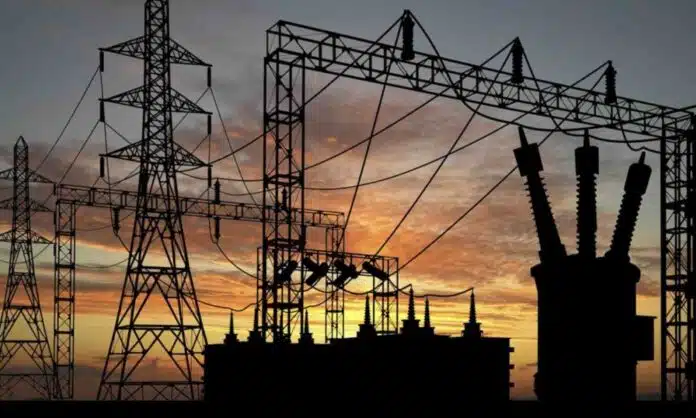Power outages have grounded businesses from kiosks to bakeries in Northern Nigeria for several days, resulting in significant losses across the region.
The blackout results from the failure of the 330kV circuit transmission lines between Benue and Enugu as well as the Shiroro-Kaduna line.
The Transmission Company of Nigeria (TCN) confirmed that the tripping of the 330kV DC Ugwaji-Apir double circuit led to the widespread blackout, leaving the North-East, North-West and parts of North-Central Nigeria in darkness. As a result, many residents and business owners are grappling with the severe repercussions of the outages.
“I had to throw away a lot of perishable goods. This outage has really hit us hard. It feels like we’re fighting an uphill battle just to stay afloat,” said a local restaurant owner, who simply gave her name as Aisha.
Pubs, which typically thrive on evening patronage, are also feeling the pinch.
“The business is almost non-existent right now. People just aren’t coming out. We depend on electricity for everything: refrigeration, lighting, and even cooking,” said John Musa, a frustrated pub operator in Bukuru, Jos.
When BusinessDay visited Jos Electricity Distribution Company (JED) in Jos, a staff member of the company said, “We’re seriously working to restore power. Very soon, we shall overcome this.”
Abubakar Mohammed, an hotelier in Yola, Adamawa State, said his cost has tripled since the outages began.
“I spend three times on buying petrol to stay in business,” he said.
Obi, Atiku, Kwankwaso speak
Meanwhile, the three major candidates of the 2023 presidential elections have voiced concerns over the blackouts, plunging businesses and households into darkness for days.
Abubakar Atiku, presidential candidate of the People’s Democratic Party (PDP), Peter Obi of the Labour Party (LP), and Rabiu Kwankwaso of the New Nigeria People’s Party (NNPP) lent their voices on their respected X accounts.
“The electricity power crisis in Nigeria continues to be a matter of immense concern. In particular, the reference is the situations in both the Southeast and the entire states of the Northwest and Northeast that have been in complete blackouts in the past three weeks,” said Atiku.
The former vice president urged every government department responsible for addressing the problem to take swift intervention and restore electricity back to the distressed geopolitical zones.
He also called for the adoption of a mix of renewable (hydro, solar, wind, and biofuels) and non-renewable (coal, gas) sources of energy, “considering that energy opportunities exist in different parts of the country, our strategy should be viable.”
On Saturday, the Transmission Company of Nigeria (TCN) revealed that the current outage affecting Northern states for several days is a result of vandalism of the Shiroro-Mando transmission line, a critical infrastructure that supplies electricity to the region.
TCN stated: “Prevailing insecurity in the area has delayed the immediate repair necessary to restore supply. However, as a temporary measure, TCN had rerouted the bulk power supply through the Ugwuaji-Apir 330kV line, which recently snapped.
“TCN has been collaborating closely with the Office of the National Security Adviser (NSA) to work with our engineers to access the vandalism site to enable them to effect necessary repairs. This is vital to ensure the safety of lives during the repairs.”
The 330kV Shiroro-Kaduna power line supplies the states of Kano and Kaduna and another line that supplies Bauchi, Gombe, and other parts of the northeast.
However, as of the time of filing this report, multiple reports still claim that the regions are yet to be electrified.
“The negative impact of the continued power outage on businesses, especially small businesses, who depend primarily on public power supply to sustain their businesses as a means of livelihood, is unimaginable,” said Peter Obi.
According to Obi, this power crisis, when combined with the present high cost of petroleum products and a harsh operating environment, remains a lethal recipe for widespread business failure and increasing poverty in the country.
“I have consistently maintained that solving Nigeria’s power and energy crisis is not rocket science. Many of our comparable peer nations have demonstrated how possible it is to provide sustainable power for their citizens.
“Our African neighbour, Egypt, for example, invested aggressively in their power sector, which resulted in the establishment of sustainable power infrastructure by way of many power stations.
“Today, Egypt has revolutionized power and energy production in the country, providing sustainable power to millions of small businesses, which account for over 90 percent of active enterprises in the country and contribute to over 80 percent of their GDP,” he added.
For Rabiu Kwankwaso, the time it has taken to address the issue of vandalism and theft in the sector highlights the huge deficit of capacity our power sector has to address large-scale problems and this must be addressed to avoid any future disruption.
He urged the stakeholders in the sector to look into alternative power sources to address our energy needs and we need to exploit the abundant resources available to this country.
“I wish to encourage all state governments and private investors to invest in alternative electricity sources, just like we did in Kano by installing two turbines in the Challawa Gorge and Tiga Dams in order to reduce the reliance on our inadequate and aged energy sources,” he said.
Tinubu expresses concern
Meanwhile, President Bola Ahmed Tinubu has expressed concern over the blackout in the northern region of Nigeria in the last weeks, which has led to summoning Adebayo Adelabu, minister of Power, and Nuhu Ribadu, the national security adviser.
A statement made available by Bayo Onanuga, special adviser to the president on Information and Strategy, on Monday, said the president is leading efforts to end the disruption that has paralysed social and economic activities.
The statement read: “The President has directed the Minister of Power and relevant agencies to speed up the pace of work to restore electricity to all the affected states in the North.”







